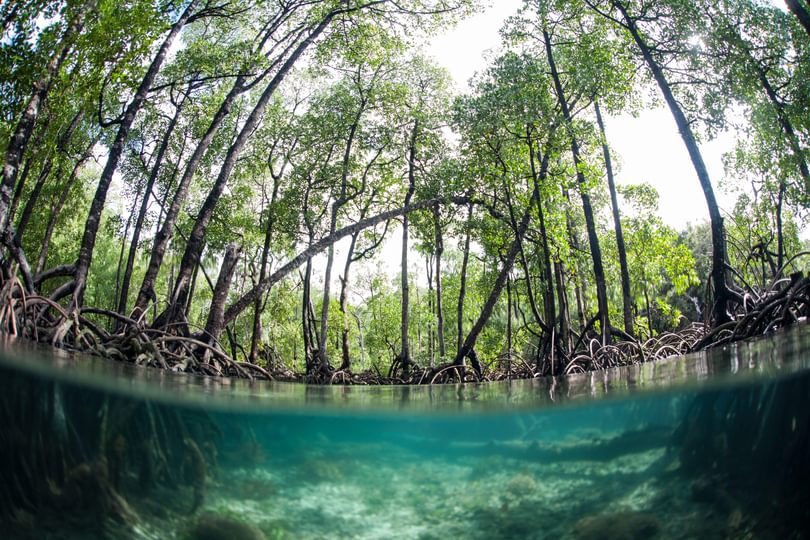
George Monbiot doesn’t have a reputation for pulling his punches, and his recent Guardian column is a case in point. In it, he takes aim at the idea of “natural capital”: the idea that, by better understanding the economic value of nature, we might better protect it. Condemning such attempts as “morally wrong, intellectually vacuous, and most of all counter-productive”, George argues that economic approaches to natural protection can only lead to one thing: the wholesale destruction of nature for profit.
George is certainly rhetorically powerful, and he is right to draw attention to the dangers of thoughtless commodification. But in trying to keep “the environment” separate and inviolate from “economics”, he is misguided.
The fact is that our economies are entirely dependent upon the environment and the natural world. They are enmeshed entirely within nature, and cannot exist without it. Simply put, without nature, no other value is possible.
Unfortunately, as we argued in our recent Wealth of Nature research report, governments and economists are largely blind to this dependency. They, like George, prefer to see nature as something entirely separate to economics, and so design our economies with no thought to how they impact upon the natural world.
Unless these blinkers are removed, our economies will remain impervious to the damage they sow, and the current dangerous trend of environmental decline will continue.
Next Tuesday, 22 May, marks the International Day for Biodiversity, but there is little cause for celebration. Current research paints a harrowing picture of ongoing mass extinction on a scale not seen for millions of years: the disappearance not only of species like rhinos and tigers, but of entire ecosystems, as pollinating insects die off, soil microorganisms vanish, and ocean flora wither away.
Extreme weather, mass extinctions, falling agricultural yields, and toxic air and water are already damaging the global economy, with pollution alone costing 4.6 trillion USD every year. And we’re in danger of losing other indispensable natural capitals, like the insects and ecosystems which support global food production, without which organised economies cannot function.
Indeed, a healthy, diverse and complex natural environment is essential if we are to build a better, more equitable and more sustainable society for the future. Our research and that of IPBES is in absolute agreement on this point: protecting natural wealth needs to sit alongside tackling climate change; climate action is only one of the 17 UN Sustainable Development Goals.
But our economies, blind to the risks of ecosystem collapse, are currently pulling in the wrong direction. Our research finds three central failings are to blame.
First, we currently lack the tools to adequately measure and understand the value of nature, meaning it is largely invisible to policymakers.
Second, many economic models assume that natural capital can be easily and almost indefinitely replaced by human-built capital, when in fact nature and human-built capital are both required for prosperity; for example, destroying an ecosystem to build a housing development may currently generate economic value, at the margin, but if all ecosystems are destroyed, food vanishes, civilisation fails and the housing development is also worthless.
Third, we don’t have the laws and institutions required to protect our critical stocks of natural capital from unsustainable exploitation.
Thankfully, the research finds encouraging signs that our economy can be rapidly rewired to protect the planet. Governments and businesses must start measuring their stocks of natural capital in comprehensive natural wealth accounts, and ensure that those assets are protected and improved. Better data is needed on the value of the natural wealth that underpins economic activity, so that value can be accounted for by treasuries and financial centres. And critical natural assets – without which society cannot survive – must be given special status so that they cannot be squandered.
As our research makes clear, all human prosperity rests on nature, and Mr Monbiot is correct to point out that many natural resources are irreplaceable – if we lose our top soil, we can’t grow food in concrete; if we kill all the bees, we can’t pollinate flowers ourselves. Our economies and our societies are dependent on nature, and once it’s gone, so are we.
Unfortunately, at present the global economic system is blind to this simple fact, and so continues to merrily saw away at the branch we’re all sitting on. Half a century of well-intentioned conservation has done little to roll back this tide of extinction. A new approach is required.
So while the work of George Monbiot others is invaluable in raising awareness of the scale of the threat and the potential downsides to natural capital approaches, we urgently need to start addressing the underlying economic structures that are incentivising destruction. Properly understanding and valuing the irreplaceable contributions of nature to our economies is, we think, an excellent place to start.
This post also appeared on The Green Economy Coalition website on 17 May 2018.
This opinion piece reflects the views of the author, and does not necessarily reflect the position of the Oxford Martin School or the University of Oxford. Any errors or omissions are those of the author.


